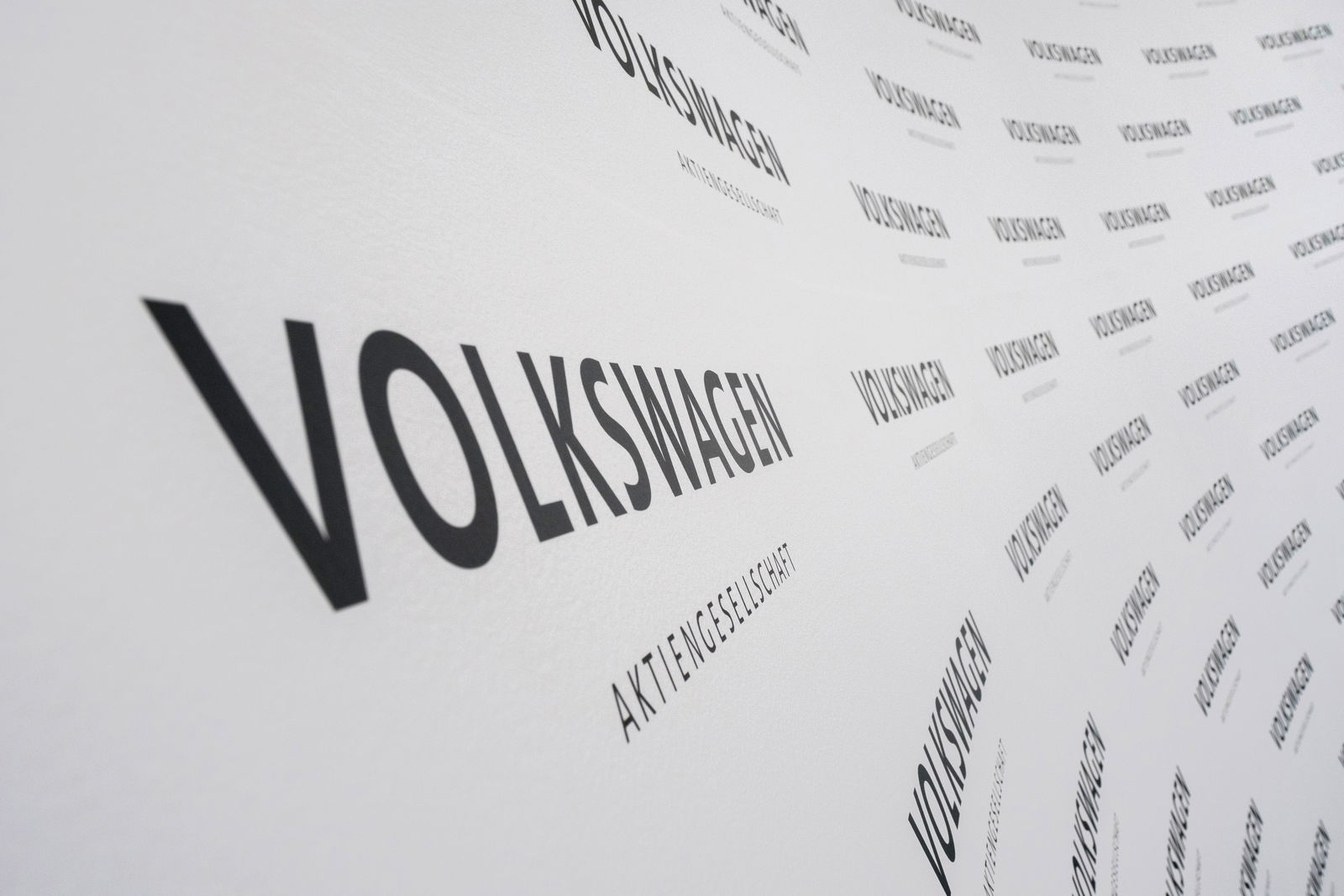Countermeasures initiated by the Volkswagen Group right at the onset of the Covid-19 pandemic to reduce costs, secure liquidity and decrease the funds tied up in working capital continued to have an impact. In particular, systematic inventory management made a considerable contribution to improving financial performance. Net cash flow in the Automotive Division stood at EUR 1.4 (8.6) billion after nine months, compared with EUR –4.8 billion at the end of June. This positive development also reflected the normalization of working capital in third quarter. In particular, there was a significant rise in liabilities recently, due to the demand-related expansion in production. The Automotive Division’s net liquidity also climbed significantly compared with the end of June (EUR 18.7 billion), rising to a very solid EUR 24.8 billion. The dividend distribution of EUR 2.4 billion resolved by the Annual General Meeting on September 30 led to a cash outflow at the beginning of the fourth quarter. The successful issue of a hybrid bond had strengthened the capital base in the first half of the year. Research and development costs between January and September were down 4.7 percent year-on-year at EUR 10.2 (10.7) billion. However, the R&D ratio rose to 8.1 (6.8) percent due to the decline in sales revenue. Capital expenditure in the Automotive Division was significantly reduced by 21.6 percent to EUR 6.4 (8.2) billion. This allowed a slight reduction in the ratio of capex to sales revenue to 5.1 (5.2) percent, despite the pandemic-driven decrease in sales revenue. Throughout this process, investments in the big future topics, electrification and digitalization, were kept at a high level.
Frank Witter, member of the Group Board of Management responsible for Finance and IT, said: “The Volkswagen Group’s business continued to be heavily impacted by the Covid-19 pandemic in first nine months. At the same time, the clear recovery trend in the third quarter shows how robustly our company is positioned. Not only did we get a grip on the acute effects of the pandemic and achieved a return to profitability. In this challenging situation, we also succeeded in making significant progress in implementing our strategy, for example by further expanding e-mobility and strengthening our digital competence, and in maintaining the financial leeway required for the substantial investments in the future. Depending on the future course of the pandemic, we are cautiously optimistic that we will be able to continue to stabilize our business in the remaining months of the year and to put the Volkswagen Group on a sustainably firm footing for the future.”
Market recovery continues – successful third quarter under Covid-19 conditions
Due to the Covid-19 pandemic, the Volkswagen Group’s deliveries dropped by 18.7 percent year-on-year to 6.5 (8.0) million vehicles in the first nine months. However, in an overall market that contracted at a faster rate, the Group was able to expand its global passenger car market share by 0.4 percentage points year-on-year to 13.0 percent. The market recovery following the sharp decreases, especially at the beginning of the second quarter, continued in the third quarter, as expected. A key driver of this development was China, the Group’s largest single market, where deliveries between July and September were 3 percent up on the prior-year period. Globally, the number of vehicles delivered to customers in the third quarter was approximately the same as in the same quarter of 2019 (–1.1 percent). In September, the Group’s global deliveries exceeded the level of the same month in 2019 for the first time this year (+3.3 percent).
The market recovery and the effect of the countermeasures initiated had a positive impact on the Volkswagen Group’s financial performance in the third quarter. Sales revenue between July and September amounted to EUR 59.4 (61.4) billion, down only slightly (3.4 percent) on the prior-year period. As expected, the operating result before special items was lower than in the previous year but, at EUR 3.2 (4.8) billion, has clearly returned to positive territory.
Outlook 2020
The Volkswagen Group anticipates that deliveries to customers will be significantly down on the previous year in 2020 due to the impact of the Covid-19 pandemic. Challenges will also arise particularly from the increasing intensity of competition, volatile commodity and foreign exchange markets and more stringent emissions-related requirements. The sales revenue of the Volkswagen Group is expected to fall significantly below the previous year’s level as a result of the Covid-19 pandemic. Overall, the Volkswagen Group anticipates the operating result for 2020 before and including special items to be severely lower than in previous year; however, in positive territory.
Expenditures for research and development (R&D) as well as capex will be lower overall than in 2019 in absolute terms. Because of a demand-related decrease in sales revenue, the R&D ratio is expected to rise above the previous year’s figure, but the ratio of capex to sales revenue is anticipated to be on a level with the previous year. In view of the lower customer demand, further payouts in relation to diesel and cash outflows from mergers & acquisitions, net cash flow for 2020 is expected to be positive, yet significantly below the prior-year figure. Net liquidity in the Automotive Division will probably be around the prior-year level. A positive return on investment (ROI) is anticipated that will be below the prior-year figure due to earnings-related factors and below the defined minimum required rate of return on invested capital of nine percent.
Brands and Business Fields
The Volkswagen Passenger Cars brand sold 1.9 (2.8) million vehicles between January and September; this represented a 31.1 percent decrease on the previous year. At EUR 47.2 billion, sales revenue was 27.9 percent lower than in the previous year. The operating result before special items decreased to EUR –1.0 (3.2) billion. Lower fixed costs and better price positioning were unable to compensate for the impact of lower volumes due to the Covid-19 pandemic as well as to exchange rate effects. Diesel gave rise to special items of EUR –0.6 (–0.7) billion in the reporting period.
Sales by the Audi brand declined to 682,000 (900,000) vehicles worldwide in the first nine months of 2020. A further 475,000 (430,000) Audi vehicles were sold through the Chinese joint venture FAW-Volkswagen. Sales revenue fell to EUR 33.3 (41.3) billion. The decrease in volumes, the impact of the measurement of derivatives, negative exchange rate effects and larger sales incentives reduced operating profit (current-year figure before special items) to EUR 0.2 (3.2) billion. Lower fixed and development costs and the deconsolidation effect from the divestment of Autonomous Intelligent Driving GmbH (AID) had a positive effect. Diesel resulted in special items of EUR –0.1 billion in the reporting period. The financial key performance indicators for the Audi brand include the Lamborghini and Ducati brands. Lamborghini sold 5,696 (6,418) vehicles and Ducati 34,160 (42,506) motorcycles in the first three quarters.
Sales by the ŠKODA brand were 25.9 percent lower in the period from January to September 2020 than in the year before, at 596,000 vehicles. Sales revenue came to EUR 12.0 (14.8) billion, while operating profit declined to EUR 469 (1,175) million. Lower volumes due to Covid-19, exchange rate effects and emissions-related expenses were offset by fixed and development costs as well as product cost optimizations.
The SEAT brand sold 319,000 vehicles in the reporting period, a decrease of 38.3 percent on the previous year. Sales revenue stood at EUR 6.0 billion, a decline of 31.5 percent compared with the previous year. The operating result fell to EUR –290 (248) million, mainly due to lower volumes as a result of the pandemic. Emissions-related expenses were also an adverse factor.
At 7,610 (7,224) units, sales by the Bentley brand were higher in the first nine months of 2020 than in 2019. Sales revenue rose to EUR 1,397 (1,306) million on the back of volume effects. The operating result decreased to EUR –52 (65) million, mainly due to higher depreciation and amortization charges, one-off expenses of around EUR 40 million for restructuring measures, and exchange rate effects.
Porsche Automotive sold 181,000 vehicles worldwide in the reporting period, thus falling 11.6 percent short of the prior-year figure. Sales revenue amounted to EUR 17.5 (18.7) billion. Operating profit decreased to EUR 1.9 (3.2) billion (prior-year figure before special items); however, a two-digit return on sales of 10.8 percent was achieved. The decrease in operating profit was attributable to lower vehicle sales as well as to cost increases, especially for digitalization and electrification. In addition, changes in exchange rates had a negative effect.
Unit sales by Volkswagen Commercial Vehicles fell to 250,000 (344,000) vehicles between January and September 2020. Sales revenue amounted to EUR 6.7 billion, a decrease of 23.8 percent year-on-year. The operating result fell to EUR –362 (497) million as a consequence of lower demand and the CO2 tax that entered into force this year. Moreover, higher start-up costs and depreciation and amortization charges for new products, higher fixed costs as well as less favorable exchange rates had a negative effect, while product cost optimizations and mix effects had a positive impact.
Scania Vehicles and Services sold 49,000 (76,000) vehicles in the first nine months of 2020. Sales revenue amounted to EUR 8.1 (10.4) billion. The operating profit of Scania Vehicles and Services declined to EUR 419 (1,209) million. Improvements in the mix and lower fixed and development costs were unable to make up for lower volumes and negative exchange rate effects.
MAN Commercial Vehicles sold 80,000 units in the reporting period; this was 23.4 percent fewer than a year earlier. Sales revenue fell to EUR 7.5 (9.2) billion. At EUR –461 (297) million, the operating result fell short of the prior-year figure, mainly due to the lower volume of new vehicles, a difficult used vehicle business and costs incurred in connection with the introduction of the new generation of trucks.
Power Engineering generated sales revenue of EUR 2.7 (2.9) billion in the first three quarters of 2020. Operating profit declined to EUR 66 (91) million due to volume effects as well as changes in exchange rates. Cost reductions and mix effects had a positive impact.
The number of new financing, leasing, service and insurance contracts with the Volkswagen Financial Services Division signed between January and September 2020 declined by 10.0 percent year-on-year to 6.2 million contracts. The total number of contracts as of September 30, 2020 was 23.8 million, up from 23.7 million at the end of 2019. Operating profit fell to EUR 1.8 (2.2) billion in the first nine months of 2020 due to risk costs.








